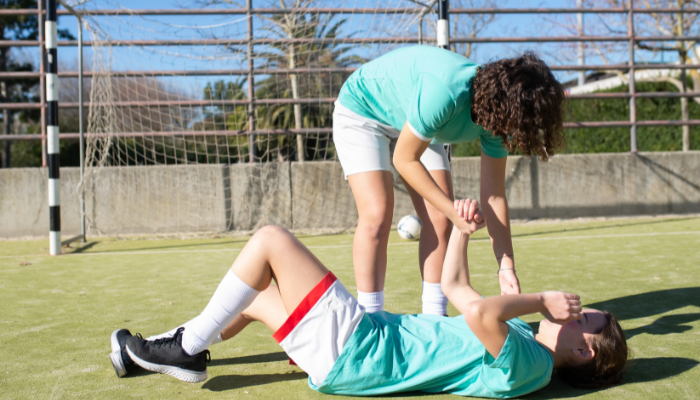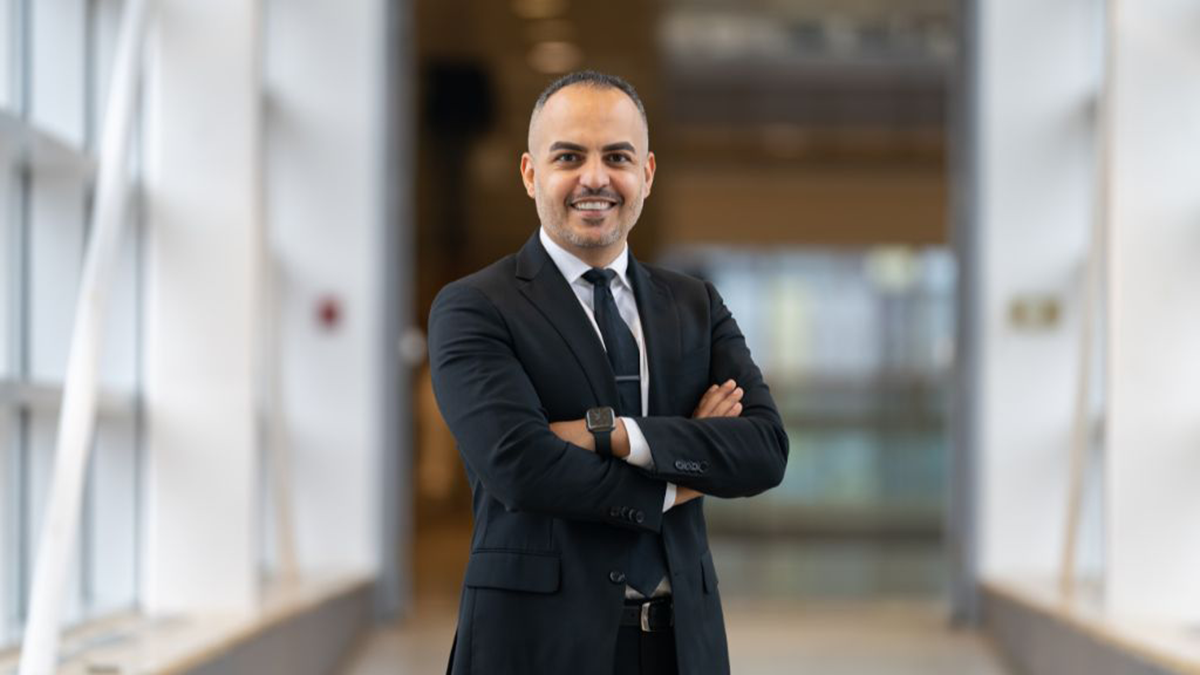McMaster clinician co-authors international consensus statement on the management of concussion in sport

A group of more than 100 international experts, including a McMaster University pediatric sport and exercise medicine physician, has distilled and synthesised new scientific evidence and updated existing recommendations with the aim of optimizing the care of athletes at all levels of participation who have, or who are at risk of, concussion.
Based on the outcomes from the 6th International Conference on Concussion in Sport, held in Amsterdam in Oct. 2022, and published in the British Journal of Sports Medicine, the statement is informed by 10 systematic reviews and a methodology paper outlining the new consensus process. It took more than five years to complete.
The statement includes a series of new (SCOAT6, Child SCOAT6) and updated (CRT6, SCAT6, Child SCAT6) age-appropriate assessment tools for healthcare professionals to help them better identify and manage sports-related concussion in the short and longer term.
It also features new evidence-based strategies for returning to active sport and education after concussion; early exercise and treatment recommendations; approaches to prevention; targeted rehabilitation; and a call for a working group to be set up to guide further research on the potential long-term effects of concussion on health.
“This statement synthesizes the evidence available at the time of the conference and provides the most up-to-date, evidence-informed recommendations for the assessment and management of sport-related concussion,” said Laura Purcell, associate clinical professor in the Department of Pediatrics at McMaster University. Purcell is a co-author on the consensus statement and two of the systematic reviews and was one of the expert panellists involved in the 6th International Conference on Concussion in Sport.
The process adopted anonymous voting, alternative viewpoints, open declarations of potential conflicts of interest, and included the views of athletes, a focus on para-athletes, and ethical perspectives to be more transparent and inclusive than in previous years.
Among the key recommendations:
Prevention
- Policy or rule changes to minimize collisions, such as disallowing body checking in ice hockey—a defensive move in which the player tries to separate the puck from his/her opponent
- Neuromuscular training—aerobic, balance, strength, agility exercises +/-neck-specific components—in warm ups
- Mouthguard use in ice hockey (all ages)
- Implementing laws and protocols, such as mandatory removal from play after actual or suspected concussion; healthcare professional clearance to return to play; and education of coaches, parents, and athletes on the signs and symptoms of concussion
Early interventions
- Strict rest isn’t recommended. There’s now stronger evidence that light intensity physical activity, such as routine activities of daily living, and aerobic exercise, such as walking and stationary cycling, can aid recovery, as can limiting screen time during the first 48 hours.
Rehabilitation
- For those experiencing dizziness, neck pain and/or headaches for more than 10 days, the Statement recommends cervico-vestibular rehabilitation—physiotherapy exercises to reduce symptoms and improve function.
- Rehabilitation should be targeted to the needs of the individual.
Persisting symptoms
- Multidisciplinary team assessment to identify the types, pattern, and severity of symptoms and any other contributory factors is advised for those with symptoms lasting more than four weeks.
Recovery
- Most people of all ages recover from concussion within four weeks.
- Advanced neuroimaging, biomarkers (chemical signals from nerves or blood vessels), genetic tests, and other emerging technologies to assess recovery are useful for research into the diagnosis, outlook, and recovery from sports-related concussion. These technologies are some way off from being used in clinical practice, says the Statement.
Return to education and sport
- Academic support may be needed for some athletes after a concussion in the form of a return-to-learn strategy: this can include modified school attendance, limiting screen time, avoiding any contact sports or game play, extra time to complete assignments/homework or tests.
- Light intensity activity in the early phases of the return to sport strategy is now recommended, with full sports participation usually occurring within one month of injury.
- But it’s best to manage athletes on an individual basis, accounting for specific factors that may affect their recovery, such as a history of migraine, anxiety, and social factors.
Potential long-term effects
- The Statement notes the “increasing societal concern about possible problems with later in life brain health in former athletes, such as mental health problems, cognitive impairment and neurological diseases.”
- Studies tracking the mental health of people over time (cohort studies) have found that former amateur and professional athletes don’t seem to be at heightened risk of depression or suicidality later in life.
- Similarly, no heightened risk of neurological disease has been reported in former amateur athletes in these types of study. But some studies of former professional athletes have reported an association between playing professional American football and professional soccer and neurological disease in later life.
- But the studies to date on the links between early sports participation and later life dementia and neurological disease are limited because they haven’t been able to adjust for a range of potentially highly influential factors, says the Statement.
- It recommends setting up an interdisciplinary working group to guide appropriate research into the potential long-term effects of concussion on health.
Evidence gaps still to be filled
- There’s limited evidence on the management of sports-related concussion in five to 12 year olds and in para sport athletes, who are known to be at heightened risk of sports-related concussion.
- And little research on concussion exists for certain regions of the world, diverse cultural contexts, sex and genders.
Funding was provided by the Organising Committee for the 6th International Consensus on Concussion in Sport Members: International Olympic Committee (IOC); Fédération Internationale de Football Association (FIFA); International Ice Hockey Federation (IIHF); World Rugby; International Federation for Equestrian Sports (FEI); Fédération Internationale d’Automobile (FIA), the governing body for world motor sport.
Education, Knowledge TranslationRelated News
News Listing

Department of Medicine ➚
Pain to progress: An impactful history of lupus research and care at McMaster
Collaborations & Partnerships, Education, Research
2 days ago

December 10, 2024

